Unveiling the Benefits of Coco Coir in Gardening
Gardening enthusiasts are continually exploring innovative ways to enhance plant growth and optimize growing conditions. In recent years, coco coir has emerged as a popular choice in the realm of growing media, offering a range of benefits for plants and the environment alike. In this comprehensive guide, we will delve into the unique properties of coco coir, its applications in gardening, and how it stands out as a sustainable and effective growing medium.
The coconut is a great fruit. We all know how delicious the flesh is and the water is nutritious with lots of potassium but also the outside husk is very beneficial. It's used in textiles to make ropes and to make things like our Coconut Fiber Pots and it can be ground down to really fine particles which are not really used in textiles, but are great for use in the garden. Coconut husks are also used as coarse chips such as our Mega Mulch, great as a mulch in planting beds and in the garden. Watch our video to see how Tricia uses coco coir in her garden.
Understanding Coco Coir: A Versatile Growing Medium
-
Derived from Coconut Husks: Coco coir is a natural fiber extracted from the husk of coconuts. This renewable resource is a byproduct of the coconut industry, making it an eco-friendly alternative to other growing media.
-
Exceptional Water Retention: One of the standout features of coco coir is its impressive water retention capacity. It can hold water much more effectively than traditional growing media like sandy soil, providing a consistent moisture level for plants.
-
Aerated Structure: Coco coir has a unique structure that allows for excellent aeration of plant roots. This prevents soil compaction and promotes healthy root development, crucial for overall plant growth.
Advantages of Coco Coir in Gardening:
-
Improved Water Efficiency: The water retention properties of coco coir reduce the frequency of watering, making it an ideal choice for regions with sandy soil or dry climates. This feature not only conserves water but also ensures that plants receive consistent hydration.
-
Enhanced Nutrient Absorption: Coco coir acts as a sponge, efficiently absorbing and retaining nutrients. This benefits plants by providing a steady supply of essential elements, promoting robust growth.
-
pH Neutral: Unlike some traditional growing media, coco coir is pH neutral, offering a stable base for plant cultivation. This allows gardeners to have more control over the pH levels, customizing them to suit specific plant requirements.
-
Reduced Environmental Impact: As a renewable resource, coco coir minimizes environmental impact. Its production utilizes a byproduct that would otherwise go to waste, making it a sustainable choice for eco-conscious gardeners.
Applications of Coco Coir in Gardening:
-
Coco Coir Bricks: These compressed blocks of coir are a popular choice for gardeners. When soaked in water, they expand to provide a convenient and eco-friendly alternative to traditional soil amendments. Coco coir bricks are versatile and can be used in various gardening applications.
-
Growing Medium for Containers: Coco coir's lightweight and moisture-retentive properties make it an excellent choice for container gardening. It ensures that potted plants receive consistent hydration and a well-aerated environment for optimal root health.
-
Hydroponics and Aquaponics: Coco coir is gaining popularity in hydroponic and aquaponic systems. Its water retention and nutrient absorption capabilities make it an efficient substrate for these soilless growing methods, promoting healthy plant growth.
-
Seed Starting Mix: Coco coir is an ideal component in seed starting mixes. Its fine texture provides a suitable environment for seed germination, offering a good balance of moisture and aeration for young plants.
-
Mulching Material: As a mulching material, coco coir helps regulate soil temperature, suppress weeds, and retain moisture. Its slow decomposition rate ensures a longer-lasting mulching effect.
Choosing the Right Coco Coir Products:
-
Organic Coco Coir: For gardeners prioritizing organic practices, there are organic coco coir options available. These products are sourced from coconuts grown without synthetic pesticides or fertilizers.
-
Blended Coir Products: Some coco coir products are blended with other organic materials to create well-balanced growing mediums. These blends may include ingredients like perlite or vermiculite for added aeration.
Tips for Using Coco Coir Effectively:
-
Preparation: Before use, coco coir should be thoroughly soaked in water to expand and loosen its fibers. This ensures optimal water retention and aeration properties.
-
Mixing Ratios: Depending on the specific gardening application, coco coir can be mixed with other components like perlite or compost. Finding the right ratio ensures a well-balanced growing medium.
-
pH Monitoring: While coco coir is pH neutral, it's essential to monitor and adjust the pH levels if necessary, depending on the plants being cultivated.

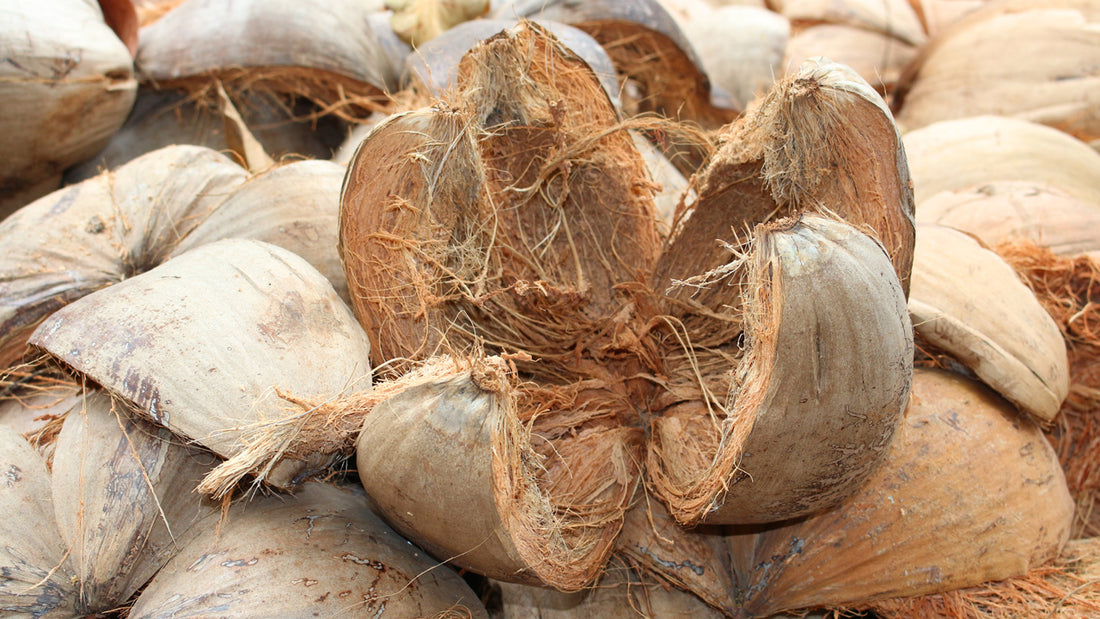
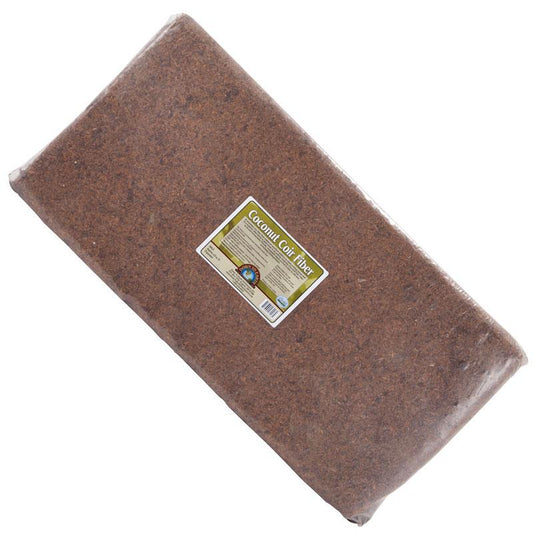
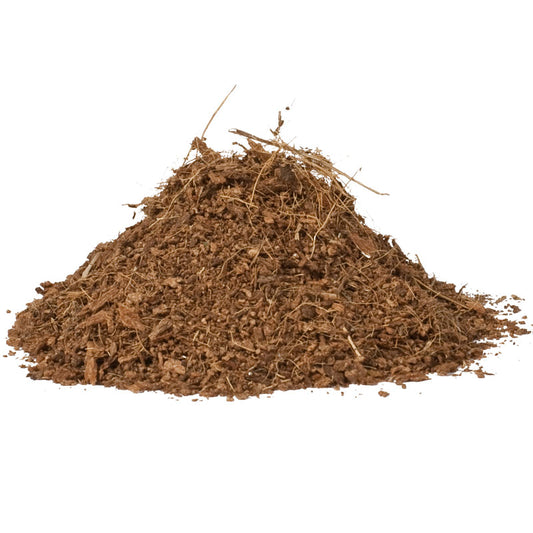
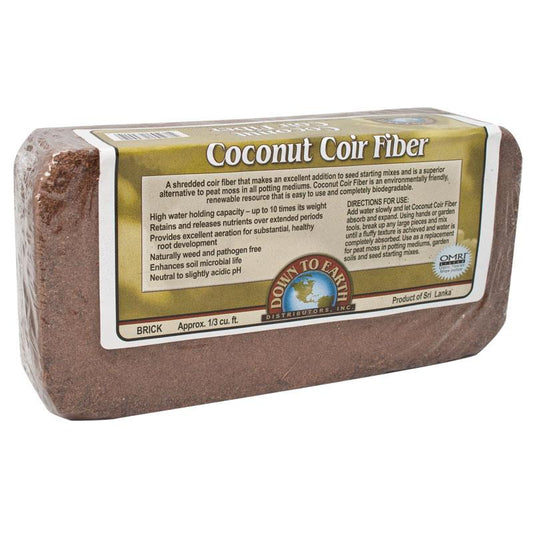

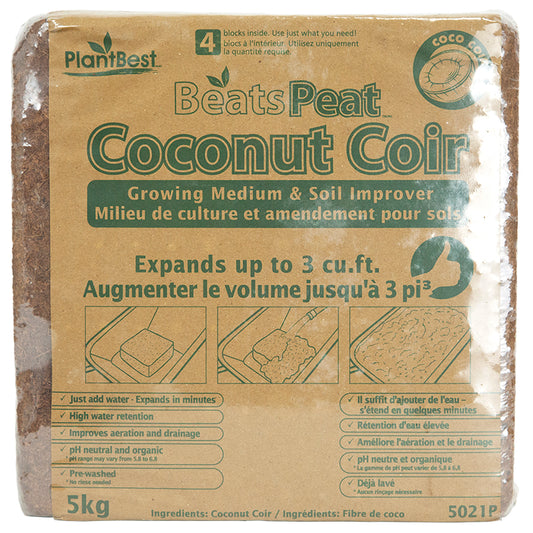
19 comments
We have a lot of coco coir in our garden and I had no idea that it has a lot of benefits. Thanks to this article, I learned a lot while reading it.
Michele, I would choose a coco coir that is certified organic, such as the blocks of coco coir. You can mix it with the ocean forest. You could also use our organic quickroot with is a seed starting mix.
Hi There Fellow Gardener,
I’m just starting out growing micro greens. Just now researching the best organic growing medium. I was told Fox Farm Ocean? is very good. I’m thinking to mix in this coconut coir. Will it end up saving me money? Is it less costly than the fox farm product? Which brands are good for this organic growing process?
Thank you
i’ll give up my secret. coco coir, verm, and manure. veggies love it. got it from growing mycelium as they love it too.
Julie, we checked with our vendor and the bricks (from Down to Earth) are not really not rinsed (occasionally they get rained on when left out to dry), but they state that “they have not had any complaints about high salts”. There is a bagged coco coir that states that it is rinsed but says nothing about pathogens.